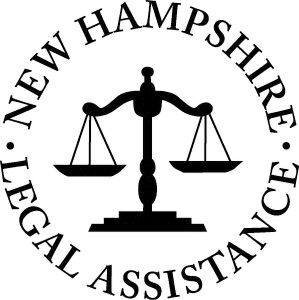The Violence Against Women Act and Fair Housing
The Violence Against Women Act of 2022 (VAWA) went into effect on October 1, 2022. The law, which Congress reauthorized earlier this year, gives survivors of domestic abuse and sexual violence the additional housing protections they deserve. This reauthorization was part of a spending bill that increased HUD funding by $4 billion. The new law includes the establishment within HUD of a new office of Gender-Based Violence Prevention. This expansion of VAWA has been a long time coming, and it is a historic win for survivors of domestic violence–especially for the disproportionate number of women who are struggling with obtaining fair housing due to past or present domestic violence, sexual violence, and stalking.
Before we go more in depth into the specifics of the VAWA reauthorization and the benefits of this law to victims, we should first define what constitutes “domestic violence,” “sexual violence,” and “stalking.” If you are already familiar with VAWA, the definitions have remained unchanged. If you are not, here is how each term is defined:
Domestic Violence – Felony or misdemeanor crimes of violence, such as assault or harassment, committed by current or former sexual or intimate partners, persons cohabitating or who cohabitated with each other, family or household members, or persons with whom the victim shares a child.
Sexual Assault – Any nonconsensual sexual act proscribed by federal or state law. Such proscribed behavior includes, but is not limited to, causing another person to engage in a sexual act by using force against that other person or by threatening or placing that other person in fear.
Stalking – A course of conduct directed at a specific person that would cause a reasonable person to fear for his or her safety or the safety of others or suffer substantial emotional distress.
While the current terms remain unchanged, the definition of “homelessness” under the McKinney-Vento Homeless Assistance Act will be altered to better address the needs of youth survivors who are displaced–in turn, permitting additional VAWA-related activities under McKinney-Vento Homeless Assistance Grants.
As a result of the historic VAWA reauthorization, several initiatives have been put in place to further protect the safety and rights of survivors. As noted above, a new gender-based Violence Prevention Office has been established. This office will oversee the implementation of VAWA within HUD, in coordination with other federal agencies. The new Gender-Based Violence Prevention Office will help to advance broad, interagency strategies for housing that will hopefully reduce and improve outcomes of gender-based violence across the country. Additionally, VAWA now requires the HUD Secretary to conduct a study assessing the availability and accessibility of housing for those survivors experiencing homelessness or housing instability as a result of trafficking (or those at risk of being trafficked). These combined efforts will undoubtedly prove to be life changing.
VAWA 2022 also expands the list of federal housing programs covered under the law. As with VAWA 2013, only federally subsidized housing is covered. The law does not apply to private housing with no subsidies. As for the types of housing that are included under the new VAWA, each department has their own list of qualifying properties protected under the Act:
U.S. Department of Housing and Urban Development
Public Housing
Section 8 Housing Choice Voucher program
Project-based Section 8 housing
Section 202 supportive housing for the elderly
Section 202 Direct Loan program
Section 811 supportive housing for persons with disabilities
Section 236 multifamily rental housing
Section 221(d)(3) Below Market Interest Rate housing (BMIR)
HOME
Housing Opportunities for Persons with AIDS (HOPWA)
McKinney-Vento Act programs
Transitional Housing Assistance for Homeless Veterans
Grant programs for homeless veterans with special needs
Supportive Services for Veteran Families (SSVF)
Veterans Affairs Supportive Housing (VASH)
National Housing Trust Fund
Transitional Housing Assistance Grants for victims of domestic violence, dating violence, sexual assault, and stalking
U.S. Department of Agriculture
Rural Development (RD) multifamily housing programs, including the Rural Development Voucher program
U.S. Department of the Treasury
Low-Income Housing Tax Credit program (LIHTC)
Agencies also could choose to add other federal programs that provide affordable housing for low- and moderate-income persons through VAWA’s new “catch-all” provision, which means additional covered programs would not have to be specifically approved by Congress but could be identified by the appropriate agency itself.
It is important to remember that VAWA is in place to protect the rights of tenants and applicants against negative treatment in their housing due to domestic violence, sexual assault, and stalking, but it also protects the rights of landlords and guests to report crime or seek emergency assistance. If you or someone you know is a victim of domestic violence, sexual violence, or stalking and has faced eviction, program termination, or other negative housing outcome because of it, we are here to help. Go to fairhousing-nh.org or call 1-800-921-1115.

